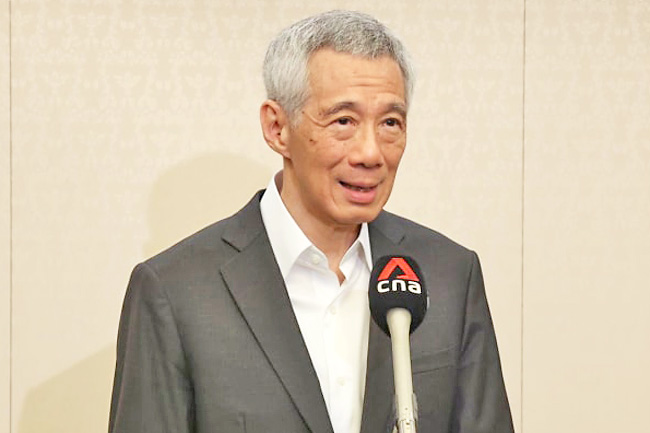CNA – Singapore has built its food resilience with buffer stocks and by diversifying its sources, so that it can cope when any single source is disrupted, said Prime Minister Lee Hsien Loong yesterday.
Speaking to media at the end of a four-day working visit to Tokyo, Japan, Lee was replying to a question on how Singapore will be responding to other countries’ export bans – and if it will seek redress at the World Trade Organization (WTO).
He said the answer to such a situation “is not what we do now, but what we have been doing now for several years, which has been to build up our buffer stocks and our resiliency, and diversify our sources”.
“So that (when) any single source is interrupted, we are not unduly affected. And if you can’t buy chicken from one place, you can buy chickens from other countries.”
He added: “This time it is chicken, next time it may be something else. We have to be prepared for this.”
Describing the world as “very unsettled”, Lee acknowledged ongoing issues of inflation and high costs of living. But he also said “many more disruptive things can happen than just some price adjustments”, adding that some of these are already playing out.

Lee also said that a country can seek redress at the WTO if any rules have been violated, but this will be a long process – and securing the supply of food is an immediate urgency. He also said it was “regrettable” that countries have begun raising export controls, as this adversely impacts Singapore, a consumer country that imports food.
But he added that it is “not so surprising” that such things happen. Presently, food supply chains are being disrupted because of the Ukrainian war and inflation is also high, he said.
“So governments are under pressure and sometimes they take unconventional measures. For example, interdicting exports of products, and several governments have done this.”
Lee was also asked about Singapore’s response to claims by China that the Indo-Pacific Economic Framework (IPEF), a United States (US)-led pact, is a strategy to create “divisions”.
Singapore has signed up to the IPEF, which was launched on Monday.
In response, Lee said economic engagement between the US and the region, and China and the region, should both very much be encouraged.
He noted that Singapore supports China’s Belt and Road Initiative and is also a member of the Group of Friends of the Global Development Initiative, put forward by the Chinese.
At the same time, Singapore has cooperation arrangements with the US – now, including the IPEF, Lee said. The IPEF aims to promote economic cooperation, and its membership is meant to be “inclusive”, he added.
“So I do not see that the two are mutually exclusive, or just because one side is deepening its cooperation, that means it is bad for the other side.”
In his speech at a conference on Thursday, Lee also said Japan can “make a greater contribution to regional security cooperation”, if it comes to terms with its past.
When asked to elaborate on this, Lee said countries must work together to secure collective security, but in Japan’s case, this is “particularly sensitive because of the war history”.
The best way Japan can fulfil its growing imperative to play a greater role in regional security is to “(put) to rest the historical issues which have been open for a long time”, said Lee.








